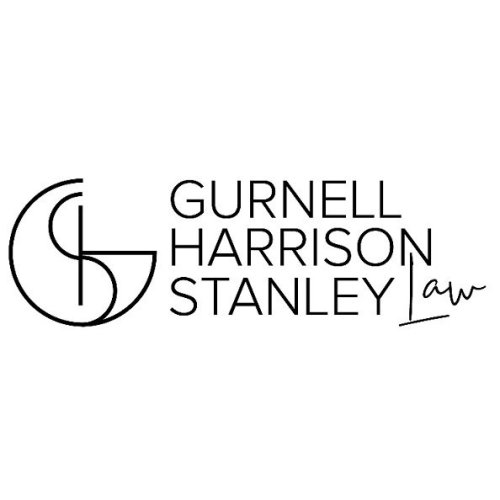Best Employment Benefits & Executive Compensation Lawyers in Hamilton
Share your needs with us, get contacted by law firms.
Free. Takes 2 min.
List of the best lawyers in Hamilton, New Zealand
About Employment Benefits & Executive Compensation Law in Hamilton, New Zealand
Employment Benefits & Executive Compensation law in Hamilton, New Zealand, involves the regulation and management of employee benefits, retirement plans, executive pay, and related financial incentives offered to workers. These laws ensure fair compensation, protect employee rights, and enhance the employer-employee relationship within various sectors. Hamilton, as a vibrant city with a growing economy, requires legal frameworks to address complexities involving employment contracts, equity grants, pension schemes, health benefits, and more, balancing both organizational and employee interests.
Why You May Need a Lawyer
Engaging a lawyer specializing in Employment Benefits & Executive Compensation can be essential in numerous situations, such as:
- Evaluating complex executive compensation packages.
- Understanding and negotiating employment contracts.
- Addressing disputes related to benefits entitlement under New Zealand law.
- Ensuring compliance with tax obligations and legal requirements in compensation structures.
- Structuring employee stock options and incentive plans.
- Handling the legal aspects of retirement and pension planning.
Local Laws Overview
Employment Benefits & Executive Compensation in Hamilton, New Zealand, is primarily governed by national legislation such as the Employment Relations Act 2000 and related regulations. Key aspects include:
- Employment Relations Act 2000: Governs employment contracts and relations between employers and employees.
- Holiday Act 2003: Sets regulations for employee leave entitlements including annual leave, sick leave, and public holidays.
- KiwiSaver Act 2006: A national retirement savings initiative, mandating employer contributions to employee savings schemes.
- Income Tax Act 2007: Affects the tax treatment of benefits and compensation, including fringe benefits and reimbursements.
- Human Rights Act 1993: Protects against discrimination, influencing fair compensation practices.
- Pay Equity Laws: Ensure equal pay for work of equal value, crucial in compensation structures.
Frequently Asked Questions
1. What types of compensation are typically included in executive compensation packages?
Typical components include salary, bonuses, stock options, benefits packages, retirement savings plans, and other financial incentives.
2. How does KiwiSaver affect my employment benefits?
KiwiSaver contributions are part of your employment benefits, with both you and your employer required to contribute to this retirement savings scheme, affecting your overall income and tax obligations.
3. Can my employer change my benefits package without my consent?
Generally, significant changes to a benefits package require employee consent, especially if outlined in your employment contract. Review your contract or seek legal advice if changes occur.
4. Are there specific tax implications for receiving stock options?
Yes, stock options can have various tax implications, including being taxed as part of income. It is advisable to consult a legal or tax professional to understand your obligations.
5. What should I do if I believe my pay is not equitable?
Contact your employer to discuss your concerns. If unresolved, you may seek legal advice or file a complaint under the pay equity laws upheld by New Zealand.
6. How can I negotiate a better executive compensation package?
Understanding your value, market standards, and existing contract terms is vital. A lawyer can assist in negotiating terms effectively.
7. What are the entitlements for leave and holidays under New Zealand law?
The Holidays Act 2003 outlines entitlements for annual leave, sick leave, parental leave, and public holidays, with details depending on your employment contract.
8. How are disputes involving benefits resolved?
Disputes can often be resolved through negotiation or mediation. Legal action may be necessary if these methods fail. Engage a legal professional to explore your options.
9. Am I entitled to severance pay?
Severance pay is not mandated by law unless stipulated in your contract. However, there are guidelines for redundancy compensation.
10. Can my employer withdraw benefits during maternity leave?
No, during statutory maternity leave, you are typically entitled to retain your benefits as per the Parental Leave and Employment Protection Act 1987.
Additional Resources
Several resources can be helpful for individuals seeking legal advice in this field:
- Employment New Zealand: Offers guidance and resources on employment rights and obligations.
- Inland Revenue Department: Provides information on tax implications of benefits and compensation.
- Human Rights Commission: Offers resources on combating discrimination and ensuring pay equity.
- KiwiSaver Guidance: Available from the Commission for Financial Capability for understanding retirement savings.
- Legal Aid: For those who cannot afford legal services, this government program may assist.
Next Steps
If you require legal assistance regarding Employment Benefits & Executive Compensation in Hamilton, consider the following steps:
- Identify specific issues or questions you need addressed.
- Gather all relevant documents, including employment contracts, benefit summaries, and correspondence with your employer.
- Schedule a consultation with a lawyer specializing in employment law to discuss your situation and receive tailored advice.
- Consider mediation or legal proceedings if disputes can't be resolved amicably.
- Stay informed about your rights and changes in the law to better negotiate and secure fair compensation.
Lawzana helps you find the best lawyers and law firms in Hamilton through a curated and pre-screened list of qualified legal professionals. Our platform offers rankings and detailed profiles of attorneys and law firms, allowing you to compare based on practice areas, including Employment Benefits & Executive Compensation, experience, and client feedback.
Each profile includes a description of the firm's areas of practice, client reviews, team members and partners, year of establishment, spoken languages, office locations, contact information, social media presence, and any published articles or resources. Most firms on our platform speak English and are experienced in both local and international legal matters.
Get a quote from top-rated law firms in Hamilton, New Zealand — quickly, securely, and without unnecessary hassle.
Disclaimer:
The information provided on this page is for general informational purposes only and does not constitute legal advice. While we strive to ensure the accuracy and relevance of the content, legal information may change over time, and interpretations of the law can vary. You should always consult with a qualified legal professional for advice specific to your situation.
We disclaim all liability for actions taken or not taken based on the content of this page. If you believe any information is incorrect or outdated, please contact us, and we will review and update it where appropriate.















